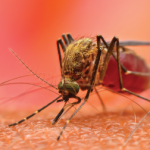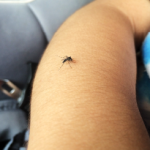The therapeutic approach to chronic chikungunya virus requires a rheumatologist and a pain specialist. It focuses on the characterization of the nosology of each patient according to the presence or absence of inflammatory symptoms (i.e., at least one joint with chronic arthritis), the number of joints involved and the level of clinical inflammatory activity (e.g., joint destruction or extra-articular involvement).
The conflicting outcomes of studies make it unclear whether specific DMARDs are effective in treating chronic chikungunya arthritis. Experts have reached a consensus, however, to propose MTX as first-line treatment. A recent study by Miner et al. sought to target both the humoral and adaptive arms of the immune response by using abatacept. In the study, abatacept reduced T cell accumulation in the joints of infected mice and, in combination with an anti-chikungunya virus neutralizing antibody, abolished signs of inflammatory disease and markedly reduced levels of chemokines, proinflammatory cytokines and infiltrating leukocytes. These candidate therapies, along with other examples cited in the review, warrant further evaluation.
Conclusions
The clinical and immunopathologic phenotype of this chronic inflammatory rheumatic disease is reminiscent of RA, and studies in animal models of alphaviral infections have unraveled previously unknown mechanisms of disease and brought to light novel therapeutic approaches.
Based on its newly recognized public health importance and its strong potential for re-emergence, chikungunya arthritis should be the focus of further experimental forays to develop novel therapeutic approaches and should gain further attention from rheumatologists worldwide.
Excerpted and adapted from:
- Zaid A, Gérardin P, Taylor A, et al. Chikungunya arthritis: Implications of acute and chronic inflammation mechanisms on disease management. Arthritis Rheumatol. 2018 Apr;70(4):484–495.


